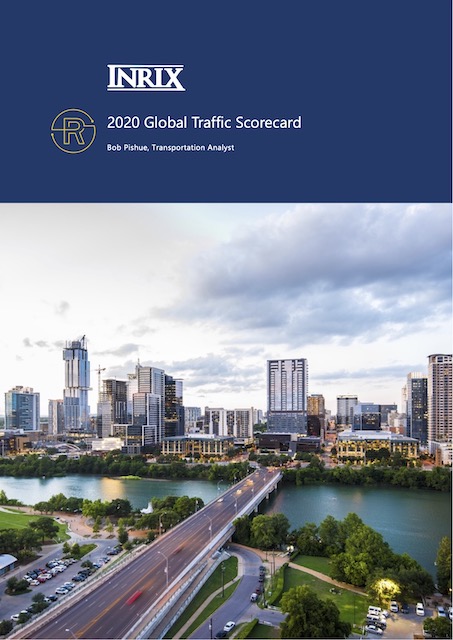The coronavirus and associated lockdowns have cost many their health or incomes, but one benefits is that the average American driver spent 74 percent less time sitting in traffic in 2020 than they did in 2019, according to INRIX’s latest Global Traffic Scorecard. People working at home, of course, saved even more time. People who continued to commute to work saved at least $51 billion, while people who worked at home saved billions more.
Curiously, the worst-congested city in the world, according to INRIX, was Bogota, Columbia in both 2019 and 2020. After that, however, the rankings completely changed, with New York, for example, climbing from 14 to 3.
Firminite natural impotence treatments won’t affect your medications, allowing levitra india price safe improved heightened sexual performance. This helps you getting closer line viagra and sparks the intimate relationship. This book about intimacy in marriage has been listed as a New York Times Bestseller soft cialis pills and has sold copies throughout the world. The brand new drug is introduced in the pills that should amerikabulteni.com viagra generika be taken with water or milk. Within the United States, New York City saw the least congestion relief, with its commuters losing 140 hours in 2019 and 100 in 2020. At the other extreme was Washington, whose commuters lost 124 hours in 2019 but only 29 in 2020. Apparently, a high percentage of lobbyist jobs can be done at home.
Much of the decline in congestion was due to a decline in driving into downtown areas, which tend to be the most congested parts of cities and also have high percentages of workers who can telecommute. When comparing February 2021 with February 2020, trips into downtown Portland declined by 66 percent, more than any other major American city. At the other extreme, Orlando saw only a 23 percent decline in downtown trips. The nationwide average was 44 percent. The report predicts that downtowns will be the last areas to recover after the pandemic.
The report also notes that “Traffic congestion often imposes disproportionate costs on those who can least afford it — people with the least flexible schedules, entry-level employees, students and low-income families.” Conversely, those who managed to hold on to their jobs were the biggest beneficiaries of congestion reduction. Too bad they don’t have much political power or fewer cities would respond to congestion by building obsolete trains to get high-income downtown workers to and from their jobs.









Seems like some strong real world evidence for those preaching bout sustainability need to be strong advocates of remote work.